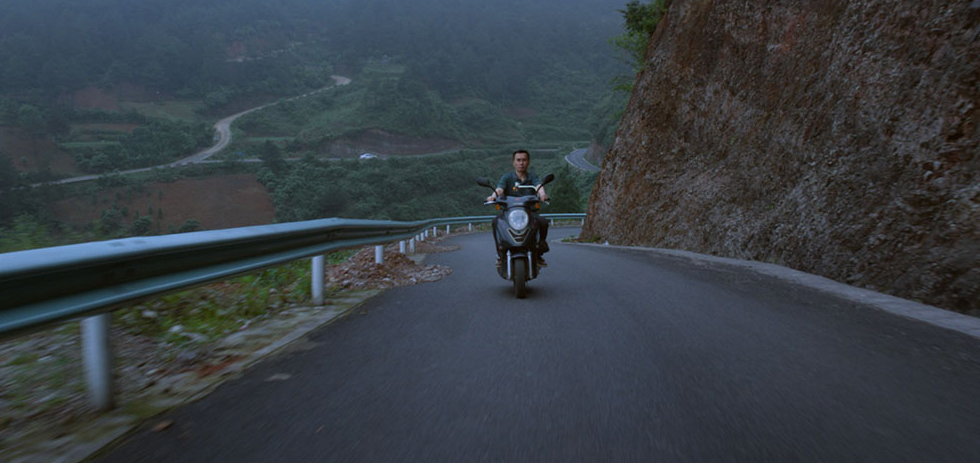Despite being one of Australia’s youngest film festivals, Brisbane Asia Pacific Film Festival has quickly established itself as one of the most reliable, impressive and carefully curated festivals in the country. The announcement of the 2016 program affirms this reputation, while making a clear effort to broaden and expand the scope of the festival – with this year the first to feature a selection of films from Europe. Alongside this, Kiki Fung’s thorough and specific approach to curating the program has been integral in establishing what this year’s lineup reaffirms as one of Australia’s highest quality film festivals.
The Colours of the Asia Pacific section of the program offers itself as “a wide-ranging look at the latest batch of outstanding cinema from our closest neighbours”, and it matches this with the most varied selection in the festival – featuring films from Turkey, India, Japan and Iran. Highlights in the section include E J-Yong’s erotic thriller The Bacchus Lady, Anurag Kashyap’s Psycho Raman, Mani Haghighi’s A Dragon Arrives!, and the spectacularly violent Destruction Babies. The aforementioned Turkish presence at the festival continues – after being at the centre of last year’s Turkish Waves selection – with 2016 selections of Cold of Kalandar and Rauf.
Katsuya Tomita’s Bangkok Nites, which was one of our favourites at Locarno, is also one of our top picks for BAPFF. It’s an ambitious and winding 3-hour work, as well as one that establishes Tomita as one of Japan’s most inventive and refreshing filmmakers. George Gittoes’ Snow Monkey – arguably the photojournalist-painter-director’s most impressive film to date – makes its way to the festival, after making its debut at MIFF, where it was one of our favourite works that year.

Zhao Liang’s awe-inspiring Behemoth and Gan Bi’s surreal debut Kaili Blues mark the start of an impressive selection from China at BAPFF 2016. Veteran figure Feng Xiaogang’s long-awaited I Am Not Madame Bovary broadens the section, as does Wang Xuebo’s Knife in the Water, a Tarkovsky-inspired documentary about the Islamic minority of the Hui in the Chinese Muslim community. Rounding off the country’s selection is Yang Chao’s Crosscurrent, a meditation on the Yangtze River shot by The Assassin cinematographer Mark Lee Ping-Bing.
While BAPFF’s programme includes a special screening of Lav Diaz’ 8-hour Lullaby to the Sorrowful Mystery several weeks before the bulk of the festival kicks off, the festival has also included a second film from the director in The Woman Who Left; which took out the top prize at Venice Film Festival this year. With Hong Sang Soo’s Right Now, Wrong Then making its Australian debut at last year’s BAPFF, it’s not surprising to see the Australian premiere of the directors latest effort – Yourself and Yours – in this year’s program.
Tsai Ming-Liang offers something a bit different in Afternoon – which premiered last month in Toronto, with the work centred around a lengthy conversation with Tsai’s long term muse, Lee Kang-sheng. Tamer El Said’s In the Last Days of the City, Vitaly Mansky’s Under the Sun, and Hirokazu Koreeda’s After the Storm all continue lengthy, well-received festival runs.
2016 marks the first year of BAPFF including films from Europe, with the “No Boundaries” selection. Between Ralitza Petrova’s Locarno Golden Leopard winning Godless, Chantal Akerman’s final work in No Home Movie, to Maren Ade’s much lauded Toni Erdmann, the section is packed with some of the strongest films of the last two years. Rounding off this selection is Oliver Assayas’ Personal Shopper, Jim Jarmusch’s Paterson, the Dardennes Brothers’ latest The Unknown Girl, and Ivo Ferreira’s Letters from War.
This years retrospective is dedicated to three of Japan’s most respected actresses: Setsuko Hara, Hideko Takamine and Kinuyo Tanaka. The selection focuses on their starring roles across legendary works from Japan’s cinematic “Golden Era”. From Ozu’s Late Spring and Late Autumn, Kurosawa’s No Regrets for Our Youth, Kenji Mizoguchi’s The Life of Oharu and Miss Oyu, to Keisuke Kinoshita’s Twenty-Four Eyes.
Of particular note is the lengthy foray into the works of Mikio Naruse – who was most well-known for the strong female roles in his films – featuring Sound of the Mountain, When a Woman Ascends the Stairs, Yearning, and A House of Geisha (Flowing). Critic and programmer Chris Fujiwara (who we spoke to at SFF2015) and BAPFF programmer Kiki Fung are set to contextualise the program with a discussion on the places these actresses hold in the legacy of Japanese cinema.
Rounding things off is a stunning shorts collection featuring the last work from Abbas Kiarostami – Take Me Home – alongside Jia Zhangke’s latest The Hedonists, another (albeit much, much shorter) work from Lav Diaz, and Pimpaka Towira’s Prelude to the General. With Locarno in August and Toronto Film Festival in September, BAPFF is continuing to make the most of its November festival slot with a program littered with premieres that historically would debut the following June or July at SFF or MIFF. It’s still a young festival, but with its strongest line-up to date, it’s continuing to highlight its increasingly valuable place in Australia’s film festival landscape.
The 2016 Brisbane Asia Pacific Film Festival runs from 23 November to 4 December 2016. For the full program, head to the festival’s website.
